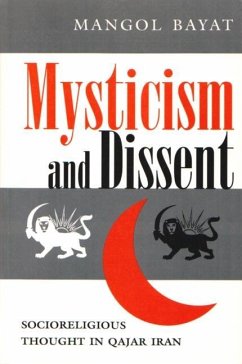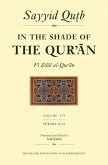This updated history examines the complex origins of religious dissent in nineteenth-century Qajar Iran (then known to Westerners as Persia), and how it provided a mood and attitude that led to far-reaching political dissent, culminating in the establishment of a new government in 1906. Bayat extracts social and political thought from theological treatises to show how a centuries-long tradition of reform in Shia thought helped pave the way for modern secular change. She also concludes that as a result of the failed attempt of doctrinal reforms and the subsequent secularization of political thought, socioreligious conflicts were left unresolved, generating tensions that were to explode generations later.
Hinweis: Dieser Artikel kann nur an eine deutsche Lieferadresse ausgeliefert werden.
Hinweis: Dieser Artikel kann nur an eine deutsche Lieferadresse ausgeliefert werden.








